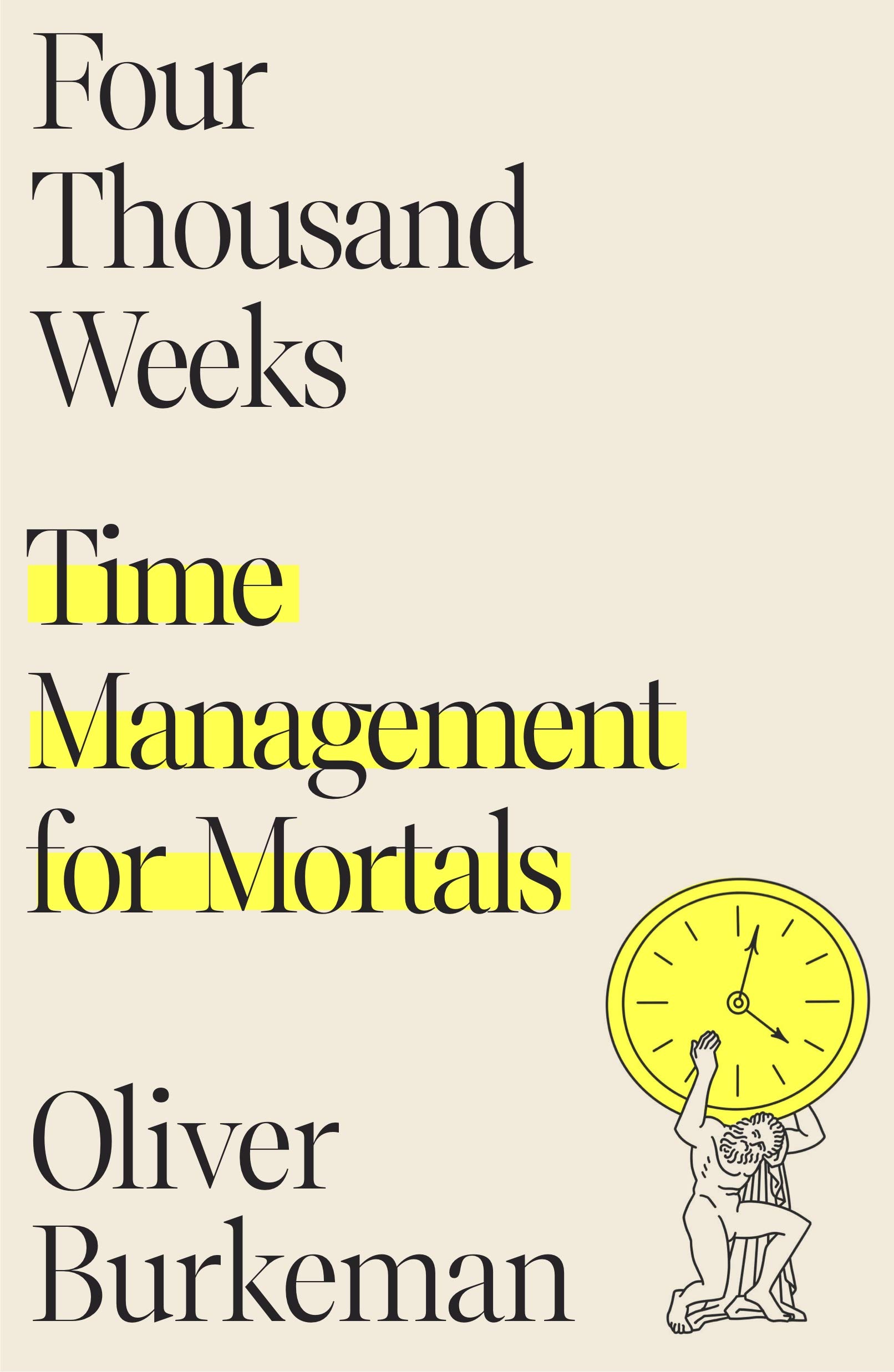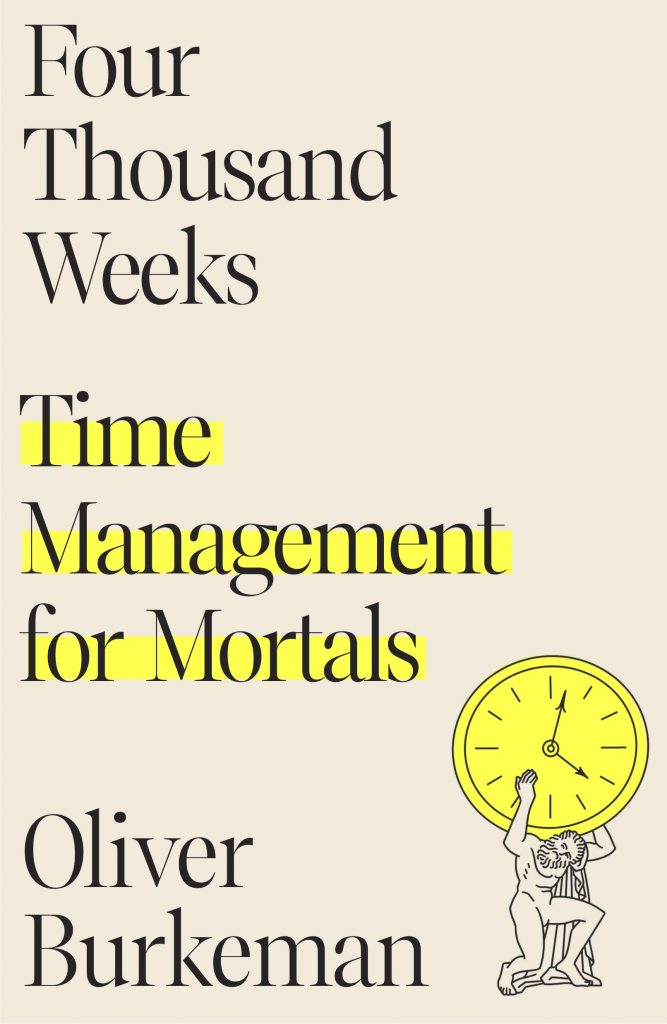Book by Oliver Burkeman
Review by Jennifer Sullivan
One doesn’t so much read Oliver Burkeman’s Four Thousand Weeks: Time Management for Mortals, as experience its clarifying power. While booksellers may shelve it alongside the self-help books intended to teach mere mortals how productivity superheroes optimize life (think The Four-Hour Work Week), Burkeman wants his readers to abandon optimization as a pointless mission. He advocates for a limit-embracing life, and gives readers “some ways of thinking about time that do justice to our real situation: to the outrageous brevity and shimmering possibilities of our four thousand weeks” (not so fun fact: an eighty-year life is roughly equivalent to 4,000 weeks. Tick tock.)
Much of the joy of the book exists in the rationale it imparts for letting go of impossible standards, which makes it a good read for that time in spring when you realize your grand New Year’s resolutions have shrunk into cute ideas you once had. “The real measure of any time management technique,” he writes, “is whether or not it helps you neglect the right things.” But it’s not all about letting go. Burkeman’s three principles for the dilemma of finite time – (1) pay yourself first in time; (2) limit your work in progress; and (3) resist the allure of middling priorities (prioritize your top 5, and run from next 20) – are as useful a compass as any in choosing how to spend your precious life. “The way to find peaceful absorption in a difficult project, or a boring Sunday afternoon, isn’t to chase the feelings of peace or absorption, but to acknowledge the inevitability of discomfort, and to turn more of your attention to the reality of your situation than to railing against it.”
By urging readers to abandon “pathological productivity,” Burkeman encourages them to experience “the paradoxical reward for accepting reality’s constraints [which] is that they no longer feel so constraining.” In a sea of time management snake oil, Burkeman is selling something very different: the truth, if we’re willing to face it, which paradoxically allows us to better embrace our own allotment of weeks.


